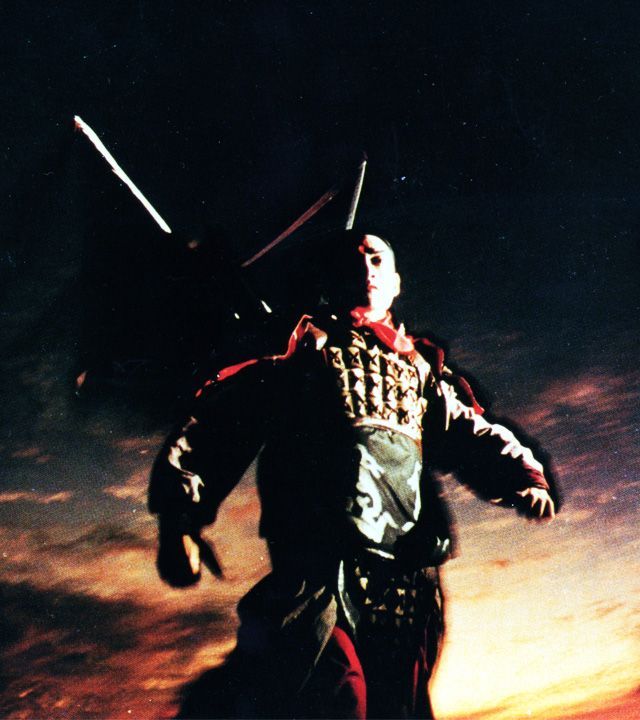1. What was it about the story of "Macbeth" that inspired you to adapt it as The Contemporary Legend Theatre's first production?
First of all, both Chinese Opera and Shakespearian drama share more than three hundred years of history. They both are the finest art forms of its cultural heritage. Representing the development of human civilization, social hierarchy and the customs of the people, Chinese opera and Shakespearean drama share many common grounds, specifically in performance styles such as poetic language, simple stage setup, quick scene, changes and dialogues between the characters and audience. This is the main reason why Shakespearean drama can be easily converted into Chinese opera.
Chinese opera is strictly actor-based. When I was selecting a play to adapt, Macbeth offered a personal for me—producer, director, and leading actor in one. If I were a woman, Medea might have been my best choice!
2. What particular challenges were there in making Macbeth fit the form of Peking Opera? In which ways was it necessary for the story to change?
The biggest challenge is the script. There are religious, political and social differences between Shakespearean England and the Warring States in China. We need to change some storyline to make it understandable to oriental audience. For example, in China, there are quite a few examples of ambitious, powerful women who usurped the throne or power. For our audience, we need more reason than Lady Macbeth’s conscience to explain her madness, so we add the plot of her stabbing the assassin herself and a miscarriage of her first born. Also Macbeth was presented in speeches and dialogues only, but Peking opera encompasses not only dialogues but also singing, dancing, and acrobatic movements. Its original 5 acts, 26 scenes were condensed to 4 acts, 13 scenes in order to allow ample time for these Peking opera elements.
3. Why did you rename the play The Kingdom of Desire? What is the meaning and significance?
I renamed it because the Chinese title more aptly describes the storyline than just Macbeth. When written in calligraphy, the Chinese title gives the audience a stunning effect.
Specifically in Chinese: "Desire" is man's basic power struggle instinct. "Kingdom" is the arena of men's struggle; it is also an epitome of the world.
4. What kinds of modern elements has the Contemporary Legend Theatre introduced to the traditional form of Peking opera? Besides the fusion with classic Western drama, in what ways have you worked to update the form?
Traditional Peking opera has not changed for many years. It employs a bare stage with a table and 2 chairs, and costumes and masks in the fashion of Ming Dynasty. But I revitalized it with modern aesthetics. In The Kingdom of Desire, the story background is set in 300 B.C., so the visual presentations follow the style of Han Dynasty, with strong lines and dark colors. The heavily layered skirts for woman, for example, imply the evil deeply wrapped in characters.
Music and lighting are the other two other elements that we spent a lot of time and energy improving. Traditionally, there is no such thing as prelude or theme, or lighting design, in Chinese opera. The Kingdom of Desire brings in the modern theatric elements to amplify the beauty of the East. We took pains to make the fusion congruous.
5. What are the particular Peking opera elements that you choose to incorporate into your performance?
The poetry, singing, and physical movements (dance, acrobatics, and martial arts) of Peking opera enable an actor to fully express himself. These elements will continue to be the core of our creative energy, though distinct theatre language may be devised for individual productions.

